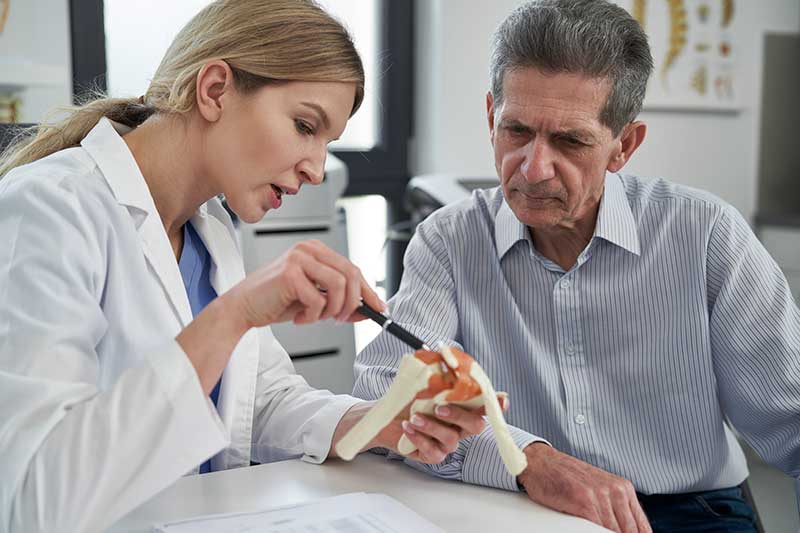Osteoporosis in Seniors Risks and Prevention
 Osteoporosis is a major health concern for seniors, characterized by low bone density and an increased risk of fractures. This illness progresses gradually, frequently going undiscovered until the bone fractures. This article delves into the symptoms of osteoporosis, the dangers of bone density loss, and how elders can manage and perhaps avoid these conditions.
Osteoporosis is a major health concern for seniors, characterized by low bone density and an increased risk of fractures. This illness progresses gradually, frequently going undiscovered until the bone fractures. This article delves into the symptoms of osteoporosis, the dangers of bone density loss, and how elders can manage and perhaps avoid these conditions.
Identifying Symptoms
Osteoporosis is known as a “silent disease” because it causes bone loss without symptoms. People may not realize they have osteoporosis until their weaker bones produce painful fractures. However, there are signals to look for:
- Sudden back pain is caused by a shattered or compressed vertebrae.
- Height loss over time is the result of crushed vertebrae.
- Stooped posture, often known as “dowager’s hump.”
- Bone Fractures That Happen More Easily Than Expected Even minor strains, such as bending over or coughing, might result in a fracture when bones are weakened by osteoporosis.
Risk Factors for Bone Density Loss
Several factors can raise the risk of having osteoporosis.
- Age: Bone density naturally falls with age.
- Gender: Women are more prone to develop osteoporosis, particularly after menopause, when estrogen levels, which protect bone density, drop.
- Diet: Not getting enough calcium and vitamin D might cause weak bones.
- Physical Activity: A lack of exercise can hasten bone density loss.
- Lifestyle Choices: Smoking and heavy alcohol intake can lead to bone loss.
- Genetics: A family history of osteoporosis increases one’s risk.
The Impact of Osteoporosis on Seniors
The biggest worry with osteoporosis is an increased chance of fractures, which can have a considerable impact on an elderly person’s quality of life. Hip fractures are particularly debilitating, resulting in diminished mobility and independence. Even less serious fractures can cause significant pain and discomfort.
Managing and preventing osteoporosis
While osteoporosis can be a terrifying diagnosis, there are effective techniques for controlling and preventing future bone density loss:
- Calcium and vitamin D: A diet high in these elements is essential for bone health. Supplements may also be required, as prescribed by a healthcare expert.
- Exercise: Weight-bearing and muscle-strengthening workouts can help you create and maintain bone mass.
- Medication: Several drugs can reduce bone loss and boost bone density. These should be discussed with your healthcare professional.
- Lifestyle Changes: Giving up smoking and limiting alcohol consumption are critical for bone health.
- Regular screenings: Bone density testing can help detect osteoporosis early on and track the efficacy of treatment strategies.
Awareness and proactive treatment are essential for treating osteoporosis and maintaining bone health in elders. Understanding the symptoms and hazards of bone density loss enables elders and their caregivers to make informed decisions to address these difficulties. It is possible to live well with osteoporosis if you make the necessary lifestyle modifications and treatments.


